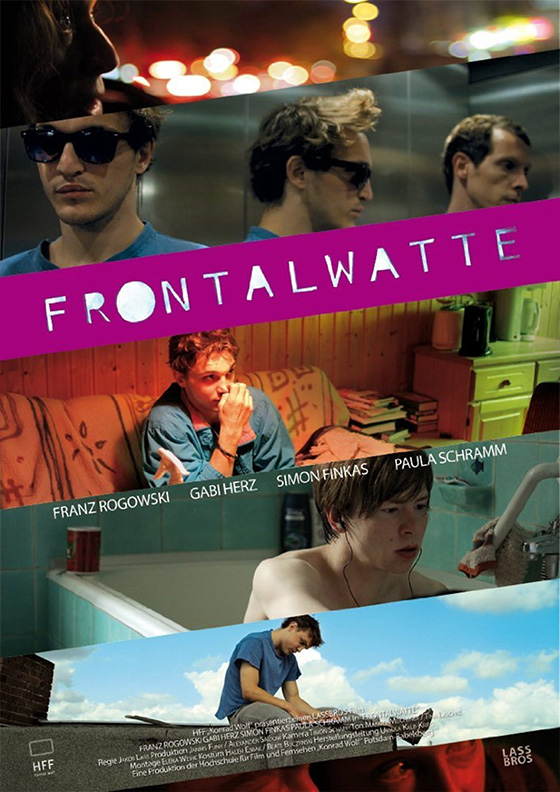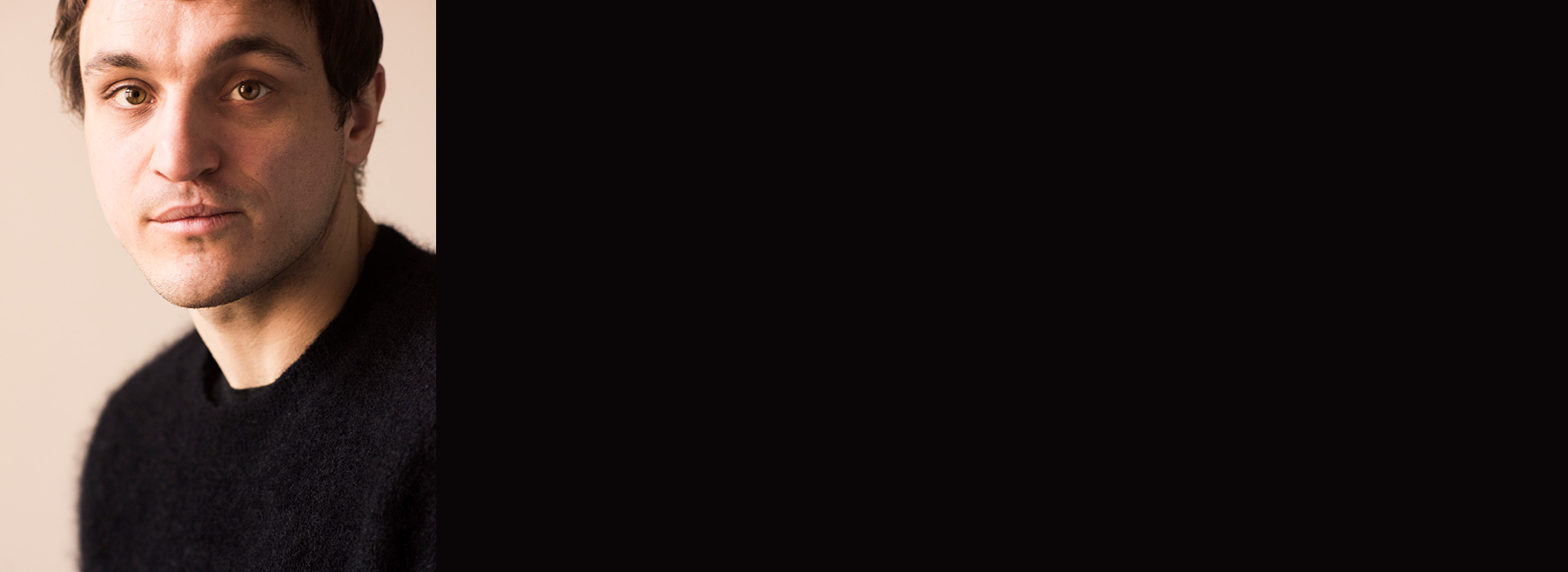A PORTRAIT OF ACTOR FRANZ ROGOWSKI
© Phuong Tran MinhThere are many memorable scenes in Michael Haneke’s latest film HAPPY END, but one lodges in the mind in particular. A young man is seen standing on the small stage of a poorly-lit karaoke bar, silent and oblivious, dancing himself into an ecstatic state. We don’t forget this surprising moment, even long after the film is over, not because we would never have expected to hear Sia’s thumping world hit “Chandelier” – of all music – in a Haneke film. Instead, it is primarily because of Franz Rogowski, whose physical presence is such that one cannot take one’s eyes off him here, even for a brief moment.
It is conceivable that Haneke cast the young German actor, born in Freiburg in 1986, as the son of Isabelle Huppert in HAPPY END – although Rogowski speaks no French – because of this very scene. He was the only one to work in German, meaning that his scenes had to be dubbed at a later date. Long before he established himself as one of Germany’s most exciting young actors, Rogowski had worked as a dancer and choreographer: among other things, he studied anthroposophic drama pedagogics in Stuttgart, physical theater in the Tessin, and contemporary dance, and he had appeared on stage at the Salzburg Festival, as well as the Berlin theater Hebbel am Ufer, in Zagreb, and in Brussels.


“IT was precisely because I wanted to get away from dancing that I decided in favor of the theater and acting,” Rogowski reveals in our interview. “I’m not at all interested in rediscovering dance in my acting.” But naturally, there was no question of declining the part in HAPPY END for that reason: “It is rather special, of course, when Haneke calls you up, simply because I have always found his films fascinating. But then again, he had also written a very strong screenplay. Those two aspects in conjunction certainly caused some delight on my part.”
The use of “Chandelier” in the karaoke bar was Rogowski’s own suggestion originally, and it was he who developed a first dance concept for the scene together with choreographer Jefta van Dinther. “But then Haneke worked as a choreographer as well, rearranging our material in his own way,” the actor reports on their cooperation. “He is really quite a perfectionist, for whom there is only a single correct form, which you need to search for. That also means he repeats a scene relentlessly until everything is just as he imagined it in his mind.”
Trailer LOVE STEAKS
The fact that he plays a rather taciturn guy in HAPPY END probably pleased Rogowski particularly, as he doesn’t much enjoy struggling his way through massive amounts of text – as he did not so long ago at the Kammerspiele Munich (where he has been an established member of the ensemble since the 2015/2016 season), in the play Wut by Elfriede Jelinek: “In the preparation phase I approach the part first by grasping it through my body, sort of like the relationship to one’s mother in the prenatal stage. When acting, for me specific ways of looking or handling a space and the objects in it are more concrete, somehow juicier.”
It was already more than obvious that this intuitive physical presence is something unusual and urgently needed in German cinema – which is generally dominated by actors trained at classical drama schools – in LOVE STEAKS, made back in 2013. That was when Jakob Lass, who is known for his improvisational style, discovered Rogowski for the big screen; the film won the Max Ophüls Prize, as well as an award at the International Film Festival Rotterdam and several at Filmfest Munich, including one for Rogowski personally. He made another appearance to worldwide acclaim in Sebastian Schipper’s exceptional film VICTORIA, shot in a single take, and he has appeared in front of the camera again for Lass recently, in the Berlinale entry TIGER GIRL.
Rogowski has often heard it said in recent years that he is bringing a breath of fresh air into current German film, as his ironic response indicates: “Fresh air is always a good thing. That’s why I air my apartment every day and also use the vacuum cleaner once a week.” Overall, he appears quite modest, emphasizing how acting is only his profession “at the moment”. After all, he doesn’t know himself how long he can, or wishes to, continue along this particular path.
Nevertheless, it is easy to see how delighted he is that since the world premiere of HAPPY END at the latest, there has been a tangible difference in attention paid to his work, and his career has now “somehow gained a different dimension”, according to Rogowski. Recently, he faced the cameras alongside TONI ERDMANN star Sandra Hüller for IN THE AISLES, and he has been working with Christian Petzold in Marseille on an adaptation of Anna Segher's TRANSIT. Maybe the actor, who has chosen to live in Munich, doesn’t believe that filmmakers abroad “necessarily need” him and his German colleagues. But that doesn’t stop him wanting to get involved in more international productions beyond the one with Michael Haneke. And Franz Rogowski would definitely be eager to return to Cannes – any time.
Patrick Heidmann

